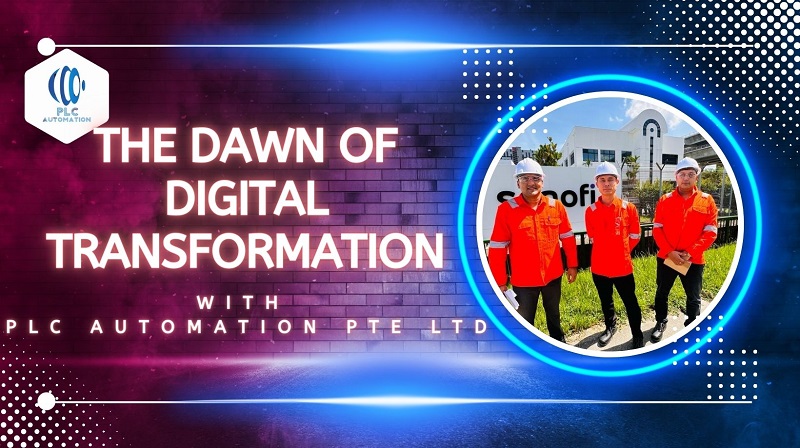
The Dawn of Digital Transformation
- by PLC
- Aug 30, 2023
Digital transformation has emerged as a pivotal force reshaping various industries. One such sector undergoing a significant metamorphosis is the industrial automation hardware market. The integration of digital technologies into traditional industrial processes is revolutionizing the way businesses operate, enhancing efficiency, productivity, and competitiveness. About 42% of the market for industrial automation hardware is accounted for by Siemens, Mitsubishi Electric, Rockwell Automation, Emerson, and ABB. In this blog, we will explore how digital transformation is driving substantial changes within the industrial automation hardware market.
The Dawn of Digital Transformation
Digital transformation involves the integration of digital technologies into all aspects of business operations, fundamentally altering the way companies deliver value to customers. It encompasses the adoption of technologies such as the Internet of Things (IoT), artificial intelligence (AI), machine learning (ML), data analytics, and cloud computing. The goal is to optimize processes, improve decision-making, and create new opportunities for innovation.
Industrial Automation Hardware: A New Horizon
The industrial automation hardware market traditionally focused on manufacturing machinery, sensors, controllers, and other equipment used in industrial settings. However, with the advent of digital transformation, these hardware components are becoming smarter and more interconnected. This transformation is paving the way for the Industrial Internet of Things (IIoT), where devices communicate, collect data, and enable informed decision-making in real-time.
Key Transformative Impacts
- Enhanced Connectivity: Digital transformation has brought forth seamless connectivity between various industrial components. Sensors and devices can communicate with each other, enabling predictive maintenance, remote monitoring, and efficient resource allocation.
- Data-Driven Insights: The influx of data from interconnected devices provides valuable insights into operational efficiency, production bottlenecks, and potential areas for improvement. Data analytics and AI algorithms help in making informed decisions that were previously based on assumptions.
- Efficiency and Productivity: Automation of routine tasks through digital technologies reduces human intervention, minimizing errors and improving overall efficiency. This leads to increased productivity and cost savings for industries.
- Agile Responses: With real-time data and insights, industries can respond swiftly to market changes and optimize their operations accordingly. This agility enhances competitiveness in rapidly evolving markets.
- Predictive Maintenance: Sensors embedded within machinery collect data on performance, allowing for predictive maintenance. This preempts breakdowns, reduces downtime, and extends the lifespan of equipment.
- Customization and Flexibility: Digital transformation enables manufacturers to produce customized products efficiently. Automation adjusts to varying production requirements, enabling flexibility without compromising quality.
- Supply Chain Optimization: The digital transformation extends beyond individual factories. It spans the entire supply chain, offering visibility into inventory levels, demand patterns, and logistical bottlenecks.
Challenges and Opportunities
While the benefits of digital transformation are immense, its implementation poses challenges. Upgrading legacy systems, ensuring cybersecurity, and upskilling the workforce are vital hurdles that industries must overcome. However, these challenges present opportunities for technology providers to offer innovative solutions in areas like cybersecurity, data management, and training programs.
The industrial automation hardware market is undergoing a remarkable evolution due to digital transformation. The convergence of traditional manufacturing with advanced digital technologies is enhancing efficiency, productivity, and competitiveness across industries. As businesses continue to embrace this transformation, they pave the way for a smarter, more connected industrial landscape that holds the promise of a more prosperous future.



